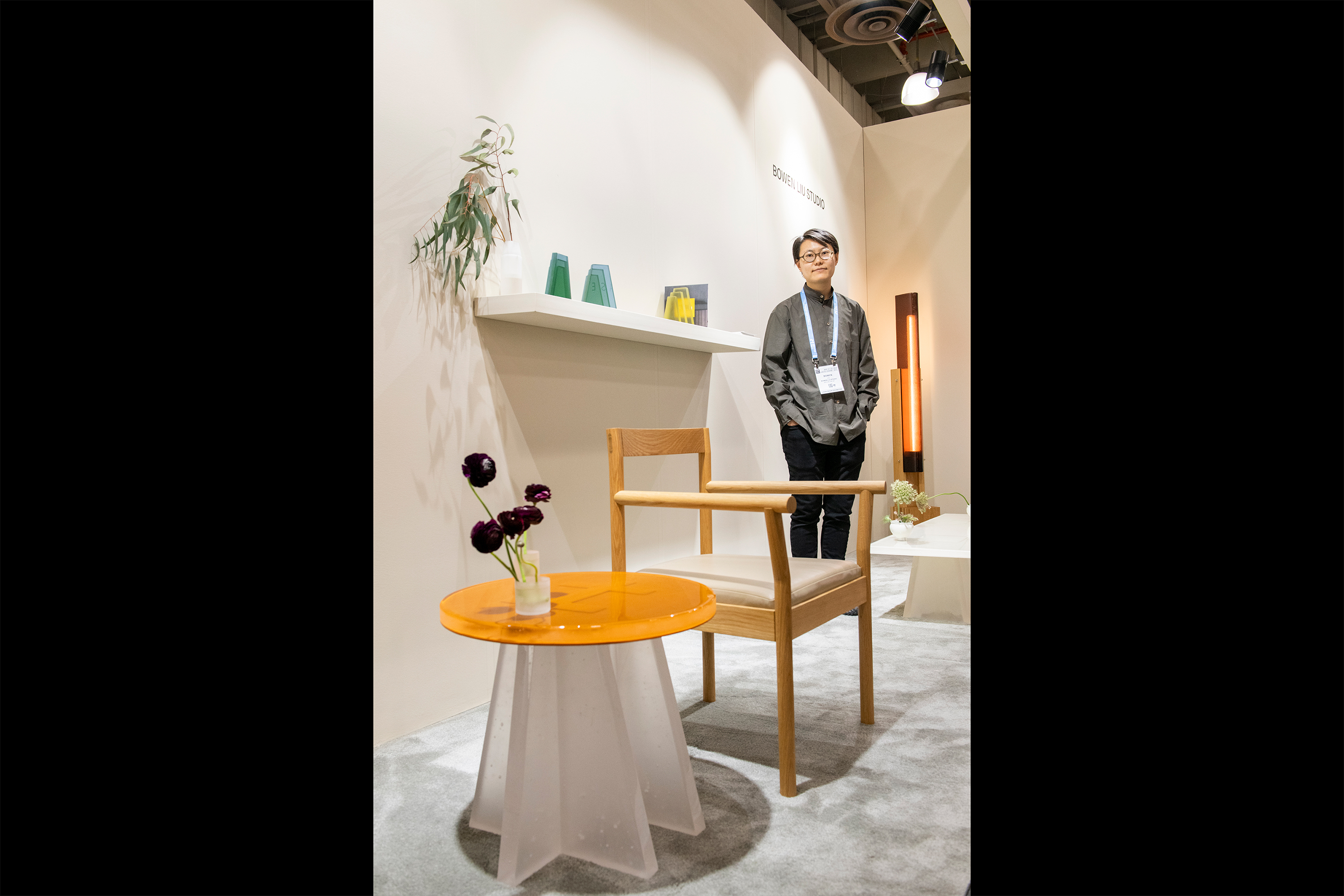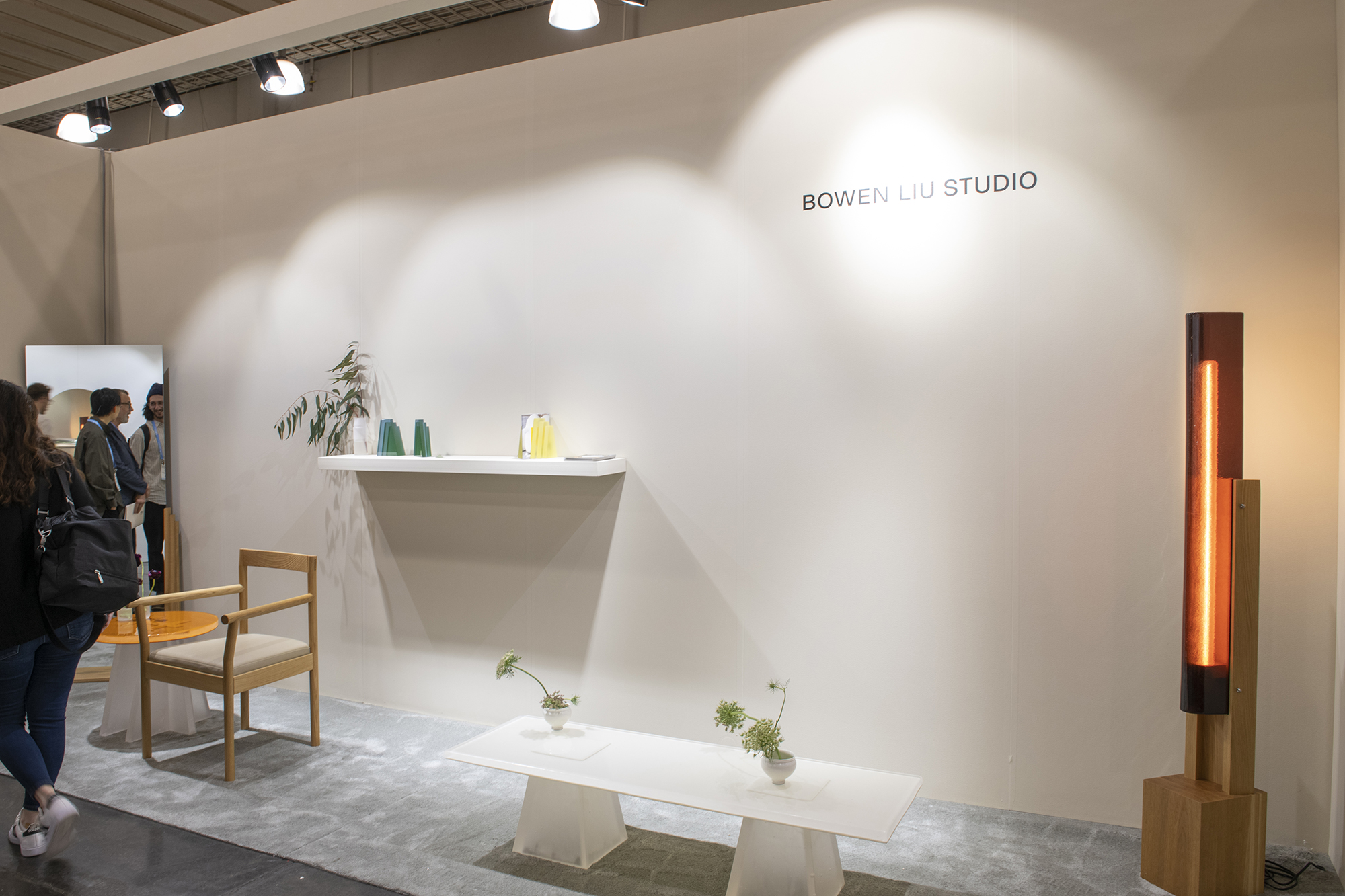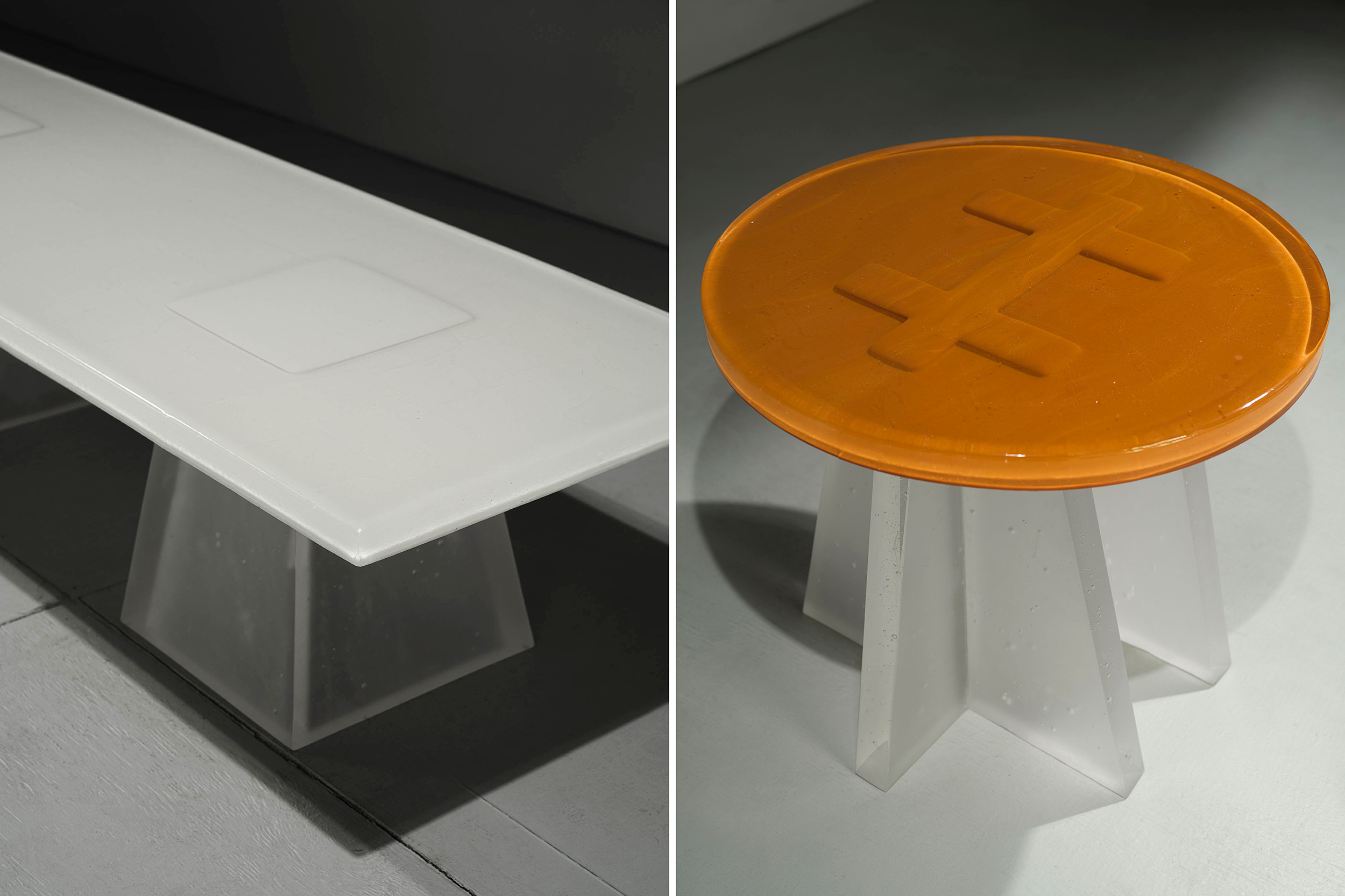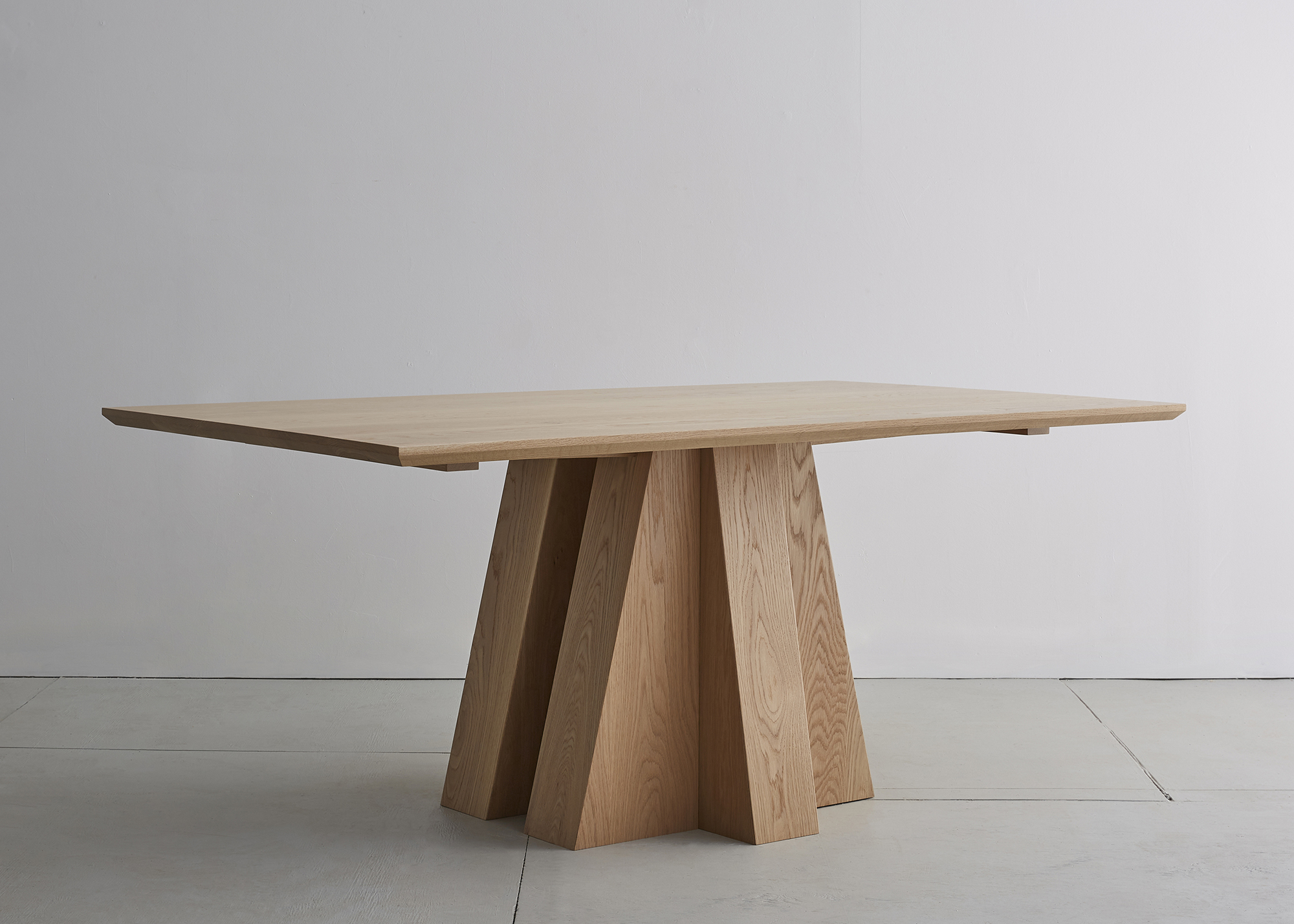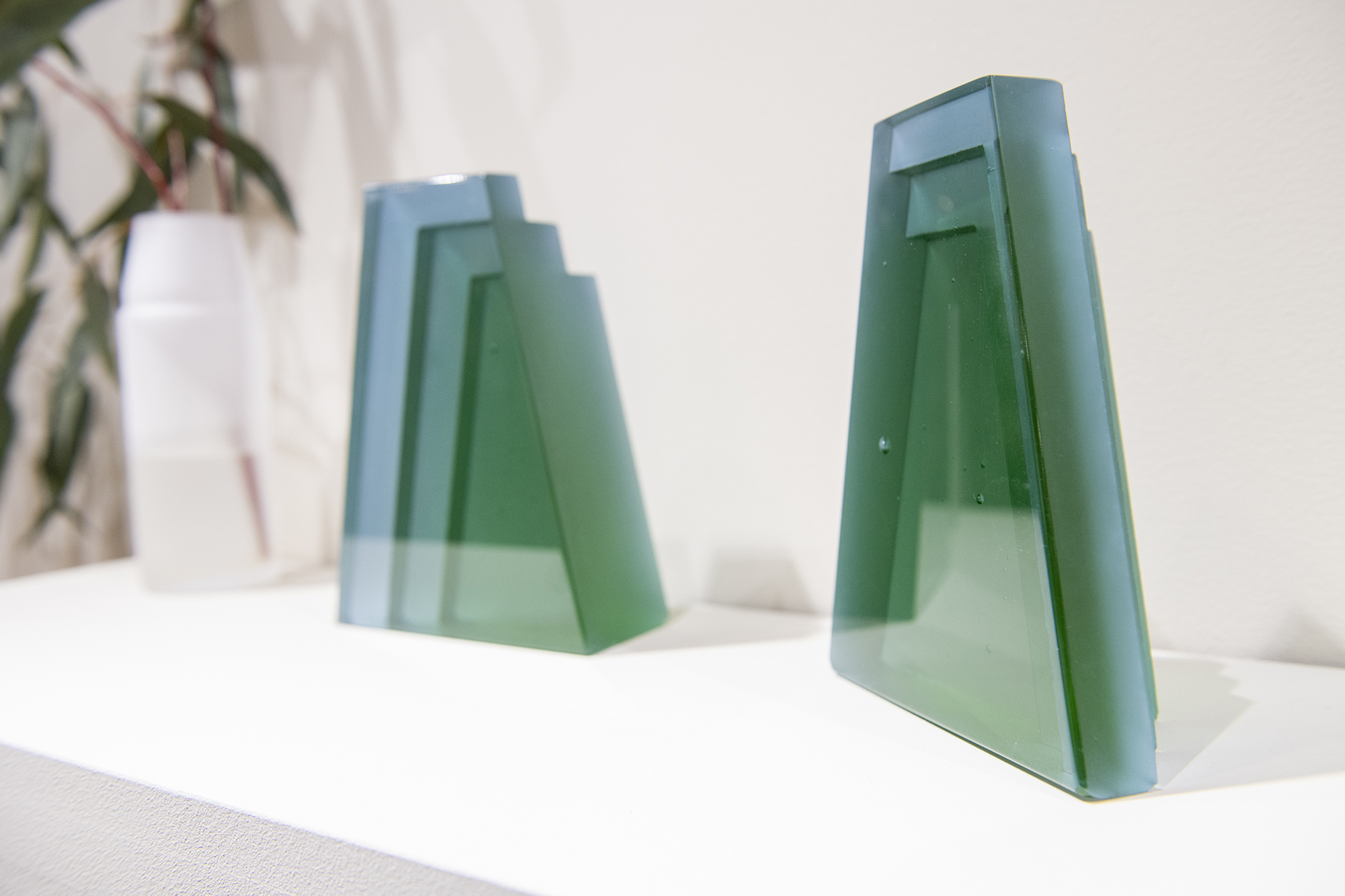Alumna adds cast glass furniture to award-winning studio
Elizabeth Lamark
Bowen Liu '16 MFA exhibited her Helle cast glass furniture collection at the 2023 WantedDesign event in New York City's Javits Center.
As Bowen Liu and the rest of her sailing team knifed through New York City’s East River, en route to a regatta, she paused to take in the beauty of Hell Gate Bridge.
The morning light touched the stone pier structure. The sharp shadows and sunlight reflections on the bridge prompted Liu, herself, to reflect.
“I was very drawn to that whole image,” said Liu ’16 MFA (furniture design), who runs a self-named, award-winning furniture design and research studio out of New York City.
That specific moment observing the shape and design of the railroad bridge was the impetus behind her well-received Helle collection. The body of work started in 2021 with a large, wood dining table. It was prominently featured in Liu’s exhibit that received the Editors Award for furniture at the 2021 International Contemporary Furniture Fair (ICFF).
At this year’s WantedDesign event in New York City, Liu revealed an ambitious growth of the collection with stunning cast glass additions. She partnered with a boutique glass studio in NYC to produce a glass coffee table, side table, bookends, floor mirror and floor lamp. Liu generated drawings and wood forms of the pieces, which were used to make a mold and then cast in glass.
Elizabeth Lamark
Liu unveiled cast glass additions to her Helle collection at WantedDesign in May 2023.
Liu has been fascinated by the materiality of glass since growing up in China. The interest was elevated after taking glass classes as an MFA student in RIT’s School for American Crafts. She likens the synching of body movement with the operation of glass tools to dancing.
“I’m really proud of this body of work,” Liu said. “There is not much cast glass furniture. It’s rare and really hard to achieve. It’s a challenging process. So I think that’s my motivation to incorporate this material and really challenge myself with the scale.”
Boyang Hu
Liu's cast glass coffee and side tables.
The cast-glass pieces of the Helle collection are just the latest works of Liu’s ever-evolving studio practice.
With Liu releasing a new artistic furniture collection every year or two, and tailoring designs to custom sizes and finishes, there is already a strong market for her work. For her most recent endeavor, Liu acquired design licensing that has her working with big, established furniture manufacturers and brands.
Liu’s designs, with a focus on traditional techniques and modern production, have been recognized with awards and included in well-known publications, including Azure, Bon Appétit, Dwell, Elle Decor, Monocle, Interior Design, Luxe, Metropolis, The New York Times and more.
“Overall, I’ve just been following my heart and pushing the boundaries of the design limitations, especially since I have this background of woodworking in craft,” said Liu, who also teaches furniture design part time at Rhode Island School of Design. “I’ve been lucky to keep doing what I like to do.”
Jacob Snavely
Liu's wood dining table that initiated her Helle collection of furniture pieces in 2021.
Liu started her Brooklyn-base studio in 2017 following her studies in RIT’s furniture design MFA program, where she remained for a year after graduating as a designer-in-residence.
She spent the summer prior to her thesis year in Denmark, engaged in the DIS Copenhagen Semester, a study abroad program Liu described as an “informative experience.” Lectures and site visits informed the making of a barstool that won the program’s student design award.
Liu’s ideation process for that barstool was similar to that of her Helle Collection and most other projects. The barstool was inspired by Denmark coffee shops she visited that also housed beer taps. She designed a stool fit for such a setting, featuring a green color to match a local beer brand label.
Elizabeth Lamark
One of the two sets of bookends Liu designed for her Helle collection.
A physical presence in different environments gives Liu the needed stimulation to drive ideas forward. She is able to transform observations and tactile experiences into a deeper understanding that power inspiration for her creative practice.
Engaging with her surroundings — whether it’s a Denmark coffee shop, railroad bride or houses designed by Mexican architect Luis Barragan — provide lessons in how to apply specific elements in her work.
“In the whole environment,” Liu said, “everything makes a lot of sense.”
Video
Bowen Liu's ambitious addition to her creative practice is a collection of cast glass furniture that complements the wood furniture she makes.









